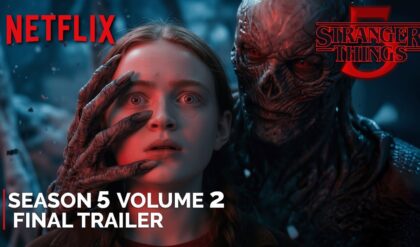🚨 DC’S NEW GAME IS ALREADY SPLITTING FANS! 🎮💥
Holy controversy, Batman! A new DC Comics game is on the horizon, but its LIVE-SERVICE reveal has fans in a frenzy! 😱 Will it soar like Arkham or crash like Suicide Squad? Dive into the debate—some are hyped for epic hero battles, while others are DONE with live-service slop! 🦸♂️ What’s your take? Click below to uncover the drama behind this DC blockbuster! 👀

The DC Comics gaming universe is no stranger to bold moves, but the recent confirmation of a new AAA live-service game from WB Games Montreal has ignited a firestorm among fans. Announced via a job listing for an Executive Producer, the game—based on an iconic DC Comics IP—promises a high-budget experience with ongoing content and live-service strategies. However, the mere mention of “live-service” has split the fanbase, with some excited for a connected DC universe and others wary after the spectacular failure of Suicide Squad: Kill the Justice League. In this article, we’ll dive into the controversy, explore the potential of this new DC game, and assess whether it can overcome the live-service stigma to deliver a heroic experience.
The Context: DC’s Rocky Gaming History
DC’s video game legacy is a tale of triumphs and missteps. The Batman: Arkham series, developed by Rocksteady Studios, set a gold standard for superhero games with its gripping narratives, fluid combat, and immersive Gotham City. Titles like Batman: Arkham Asylum (2009) and Arkham City (2011) proved that single-player experiences could capture the essence of DC’s heroes. However, recent attempts to expand beyond single-player have faltered. Gotham Knights (2022), developed by WB Games Montreal, disappointed many with its repetitive gameplay, despite avoiding a full live-service model. The bigger blow came with Suicide Squad: Kill the Justice League (2024), a live-service looter-shooter that tanked critically and commercially, leading to a $200 million loss and layoffs at Rocksteady.
The new game, developed by WB Games Montreal, the studio behind Batman: Arkham Origins and Gotham Knights, aims to dive back into the live-service pool. The job listing emphasizes post-launch content, ongoing player engagement, and a scalable production environment, signaling a long-term commitment to the model. This decision has raised eyebrows, especially given Warner Bros.’ recent financial struggles and the industry’s growing skepticism toward live-service games. Fans are divided: some see potential for a sprawling DC universe, while others fear another costly misfire.
Why Live-Service Sparks Controversy
The live-service model, characterized by continuous updates, seasonal content, and monetization like battle passes or microtransactions, has a fraught history in superhero gaming. Suicide Squad: Kill the Justice League epitomized its pitfalls, with repetitive missions, awkward loot systems (e.g., forcing melee-focused characters like King Shark to use guns), and a failure to resonate with fans of Rocksteady’s Arkham series. Similarly, Marvel’s Avengers struggled with uninspired gear progression and a sluggish content pipeline, leading to its eventual shutdown. These failures have left fans wary of live-service superhero games, which often prioritize monetization over storytelling.
The controversy stems from a perceived mismatch between the live-service model and DC’s narrative-driven IPs. Fans cherish the Arkham series for its focused, single-player stories that let players embody Batman’s grit and intellect. A live-service game risks diluting this by emphasizing grind-heavy mechanics or multiplayer elements that clash with the solitary heroism of characters like Superman or Wonder Woman. Social media discussions, particularly on platforms like Reddit, reflect this sentiment, with fans lamenting Warner Bros.’ pursuit of “live-service slop” when single-player titles like Hogwarts Legacy have proven successful.
The Potential: A Connected DC Universe?
Despite the skepticism, a well-executed live-service DC game could offer exciting possibilities. The job listing hints at a “high-quality AAA game” based on a major DC IP, suggesting a focus on polish and ambition. Fans speculate about a sprawling open-world game set in Gotham, Metropolis, or a broader DC Universe, where players could control iconic heroes like Batman, Superman, or the Justice League. The live-service model could enable dynamic events, such as villain invasions or multiversal crossovers, keeping the game fresh over years.
One compelling vision is a game inspired by DC Universe Online, a long-running MMO that, despite its age, maintains a niche fanbase. A modern take could blend Destiny 2’s shared-world shooter mechanics with DC’s rich lore, allowing players to team up as heroes or create custom characters. The success of Fortnite and Helldivers 2 shows that live-service games can thrive if they prioritize engaging gameplay and fair monetization. WB Games Montreal could also draw inspiration from James Gunn’s DCU, which aims to connect films, shows, and games. A live-service title tied to Gunn’s vision could feature characters like David Corenswet’s Superman, offering narrative synergy across media.
The Challenges: Learning from Past Mistakes
The road to a successful live-service DC game is fraught with challenges. First, WB Games Montreal must address the execution issues that plagued Suicide Squad. The game’s reliance on generic loot and forced multiplayer elements alienated fans who wanted a story-driven experience. A new DC game must balance cooperative play with a strong single-player component, ensuring that solo players aren’t left behind. For example, a modular approach like Ghosts of Tsushima’s Legends mode could offer cooperative missions without sacrificing narrative depth.
Technical hurdles also loom large. Live-service games require robust servers, frequent updates, and a long-term content pipeline, all of which demand significant resources. Suicide Squad managed to deliver its planned content but failed to engage players, highlighting the need for compelling post-launch support. WB Games Montreal must ensure that new content—whether new heroes, story arcs, or events—feels meaningful and avoids the repetitive grind that doomed its predecessor.
Monetization is another sticking point. Fans are vocal about their disdain for aggressive microtransactions, as seen in Marvel’s Avengers’ awkward gear drops (e.g., “Black Widow belts”). A DC game must adopt a player-friendly approach, perhaps offering cosmetic-only purchases or a single-player campaign free of live-service elements. The cancellation of Monolith’s Wonder Woman game, which was set to use the Nemesis System, underscores Warner Bros.’ shift toward live-service, raising concerns that fan-favorite single-player IPs are being sidelined.
Fan Reactions and Speculation
Fan reactions, as seen on platforms like Reddit and X, range from cautious optimism to outright frustration. Some envision a Justice League game where players control different heroes in cooperative missions, while others fear a repeat of Suicide Squad’s missteps. The success of Superman (2025) at the box office has fueled calls for a single-player Superman game, with fans arguing that a live-service model might undermine the character’s appeal. Speculation about the game’s IP includes Teen Titans, Justice League, or even a Superman-led title, though the lack of specifics keeps the debate heated.
The controversy also reflects broader industry trends. Recent failures like Concord and Anthem have soured players on live-service games, with many citing oversaturation in genres like hero shooters or looter-shooters. Warner Bros.’ insistence on this model, despite losing $300 million on Suicide Squad and MultiVersus, has led to accusations of chasing trends rather than innovating. Fans point to Hogwarts Legacy’s success as evidence that single-player DC games could thrive, making the live-service focus feel like a risky gamble.
The Path Forward: Can WB Games Montreal Deliver?
To succeed, WB Games Montreal must learn from past failures and embrace what makes DC special: its rich characters and storytelling. A live-service DC game could work if it prioritizes narrative depth, offers diverse gameplay (e.g., Superman’s flight, Batman’s stealth), and avoids exploitative monetization. Integrating elements like the Nemesis System, which created dynamic rivalries in Middle-earth: Shadow of Mordor, could add depth to villain interactions, making each player’s experience unique.
The studio’s track record offers mixed signals. Batman: Arkham Origins was well-received for its story but criticized for lacking innovation, while Gotham Knights struggled with performance issues and repetitive missions. With 99 layoffs in 2024 following Suicide Squad’s flop, WB Games Montreal faces pressure to deliver a hit. The involvement of James Gunn’s DCU could be a game-changer, providing a cohesive vision that ties the game to upcoming films or shows, but only if execution matches ambition.
Conclusion: A High-Stakes Gamble
The announcement of a new DC Comics live-service game has divided fans, with the promise of a AAA experience clashing against the baggage of Suicide Squad’s failure. While the potential for a connected DC universe is tantalizing, the live-service model carries risks that WB Games Montreal must navigate carefully. By prioritizing storytelling, player-friendly design, and innovative gameplay, the studio could deliver a game that unites fans rather than divides them. As the gaming community watches closely, one thing is clear: this DC title will either soar as a heroic triumph or crash as a cautionary tale, shaping the future of DC’s gaming legacy.





